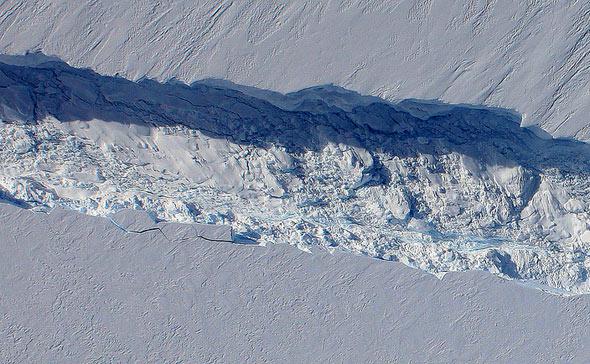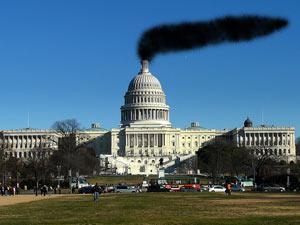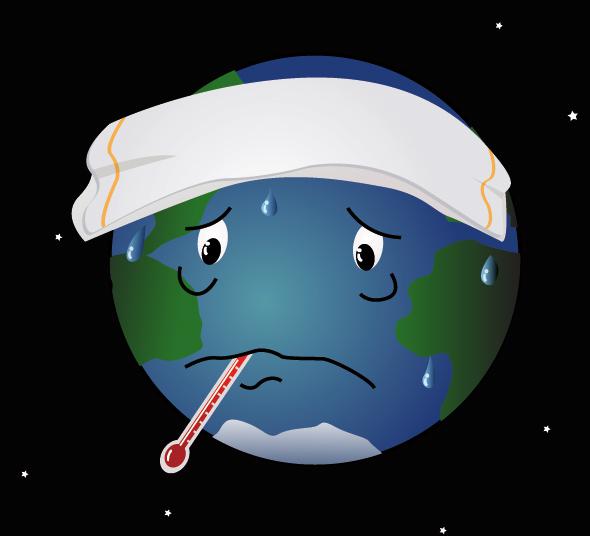It’s official: 2013 is the fourth hottest year since records started being kept in 1880. It ties with 2003 for that dubious honor.
This result was just announced by the National Oceanic and Atmospheric Administration. It uses global annual land and sea surface temperatures to make the call, and in 2013 these two measures combined for a temperature 0.62 C (1.12 F) above the 20th century average of 13.9 C (57.0 F).
Were you born after 1976? Then you’ve never experienced an average year: 2013 is the 37th year in a row with temperatures above the 20th century average.
The report also states that nine of the 10 hottest years on record have been in the 21st century (2010 is the record holder for hottest year ever). Only one year from the 20th century is on that list, 1998, and that’s about as late in the century as you can get. Not so incidentally, 1998 was an El Niño year; those years tend to have higher surface temperatures overall. 2013 was not an El Niño year; 1998 being warmer than 2013 is no cause for celebration.
So, yeah. One more piece in a very, very long list of evidence that the planet’s getting hotter. While surface temperatures are not the best way to keep tabs on warming—much of the extra energy is being stored deep in the oceans, and local effects can mask overall trends making you think there’s a pause in warming when no such pause exists—it would be foolish in the extreme to ignore it.
This news comes on the heels of lots of other global warming news as well.
Clear and Present Danger
Climatologist Michael Mann wrote an important op-ed in the New York Times called “If You See Something, Say Something.” In it, he argues that scientists are morally obligated to speak up when their research has an impact on society, especially with something as huge and damaging as global warming.
The very first thing he writes is something everyone should read:
The overwhelming consensus among climate scientists is that human-caused climate change is happening. Yet a fringe minority of our populace clings to an irrational rejection of well-established science. This virulent strain of anti-science infects the halls of Congress, the pages of leading newspapers and what we see on TV, leading to the appearance of a debate where none should exist.
That’s why scientists need to speak up about it. But when they don’t, it leaves “a vacuum that will be filled by those whose agenda is one of short-term self-interest.”
He also calls global warming a “clear and present danger.” I agree. Politicians who ignore it (and the media that enable them) are putting our country and our population at grave risk.
Ice Hole
In west Antarctica, the massive Pine Island Glacier has been in retreat for some time. A new study just released indicates that this retreat may now be past the tipping point; in other words, it may be unstoppable. The glacier is already responsible for about 20 percent of the ice loss in this region—a total of 20 billion tons of ice lost per year from the glacier alone—but if the study is correct, that number could triple in just the next 10 years or so.

Photo by NASA/Digital Mapping System team and Michael Studinger
Pine Island Glacier is huge, bigger than the state of Iowa. The glacier sits partially over land and partially over water. That water has been warming of late (though local wind conditions appear to also play a big role), and that has increased the rate at which the glacier is melting. If the glacier does continue to recede, it could add as much as a centimeter to sea levels over the next couple of decades. That many not sound like much, but that’s a large fraction of the sea level rise we’ve been seeing currently (which is about 3 millimeters per year). Sea level rise is a huge threat from global warming and the loss of Pine Island will only accelerate these effects.
The Opposite of Progress
Recently, the Senate Environment and Public Works Committee held a hearing about the president’s policy on climate change. I could devote a whole post (or three) to what was said on both sides of the desk, by the senators on the committee and the experts they had as witnesses, but I want to point out a couple of things in particular.

Original photo by krossbow on Flickr, modified by Phil Plait
1) Sen. James Inhofe (R-Okla.) sits on this committee. This is a man who still claims global warming is a gigantic hoax and has his head planted so far in the sand I expect it’s sticking up somewhere in the Southern Hemisphere. During the hearing he claimed (starting at about the 35 minute mark in the video of the hearing) once again that temperatures around the Earth have flattened, a statement that we know is inaccurate at best.
2) Judith Curry, a climatologist, made some rather odd statements about global warming (starting about 3 hours 11 minutes into the video, or you can read her testimony as a written PDF), including repeating the idea that global temperatures have flattened. She also says that Antarctic sea ice is increasing—implying that negates or detracts from the evidence for warming. However, we know that an increase in Antarctic sea ice is consistent with warming, since warmer water raises the amount of water vapor in the air, allowing there to be more snow accumulation (note that this is a very different situation than what occurs in the Arctic). Her testimony has been scrutinized by Tamino at Open Mind, Peter Sinclair at Climate Crocks, and Dana Nuccitelli at Skeptical Science. They found it less than convincing. You can see those links (and links therein) for details.
You’re Getting Warmer
When dealing with any form of denial of reality, one of the most important tools in our belt is awareness. I think there’s a pretty big group of people out there who aren’t really paying attention to this, and if they can be inspired to do something, to say something, then we stand a much better chance of taking needed action.
Of course, we have facts on our side, but facts do not speak for themselves. That’s been tried, and it doesn’t work against ideologues. Facts need advocates.
Go advocate for them. Write your senators, representative, and the White House. Also, stay informed! You can keep tabs on all this via many websites, including Climate Desk, Skeptical Science, Open Mind, and Climate Crocks. Go follow scientists Michael Mann and Gavin Schmidt and climate blogger Dana Nuccitelli on Twitter. See who they follow, and follow them. I would even encourage you to follow the “skeptics,” since it can help to see what they’re saying.
The bottom line: Climate change due to global warming is real. It’s as simple as that, and it’s way, way past time for everyone to understand it.
